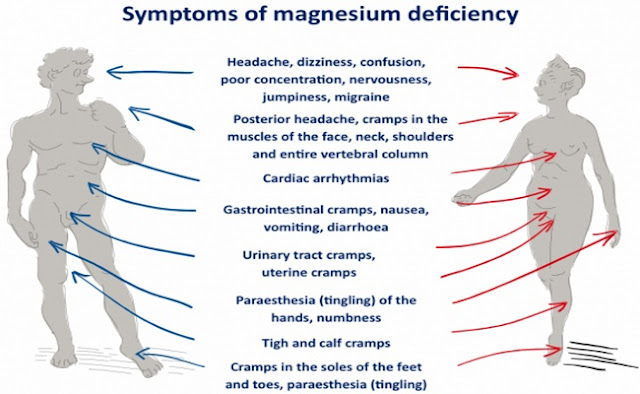The Most Common Symptoms of Magnesium Deficiency (And How to Fix It)
Magnesium is important to the body and if you are worried you have magnesium deficiency, it is a good time to learn if you have it and how to fix it.

What Causes Magnesium Deficiency?
There are several things you eat that actually cut down the body’s ability to absorb magnesium and flush the mineral out of the body before it can be put to use. Therefore, while these are not causes of magnesium deficiency, they are red flags for concern if your diet is made up of the following things and have very little that helps magnesium absorption, like taking a magnesium supplement.
Indications of Magnesium Deficiency
If you have some concerns that you are not getting enough magnesium, consider the following: do you have periods of anxiety? Do you have trouble getting to sleep or staying asleep? Do you suffer from muscle spasms, muscle cramps, facial tics, eye twitches or periods of hyperactivity? Any of these could be a sign your body is not getting enough magnesium.
What to Do?
Follow the tips below to help your body absorb the magnesium found naturally in your diet and consider a supplement, particularly if you are age 55 or older.
Avoid Soda and Sweets
Dark sodas in particular have phosphates that bind with magnesium and allow the mineral to be flushed out without allowing the system time to absorb it for use. Refined sugar, meanwhile, causes magnesium to be excreted through the kidneys. For that reason, it is best to avoid both sweets and soda if you have concerns about magnesium deficiency.
Reduce Alcohol Consumption
More than seven alcoholic beverages each week means more magnesium will be excreted by the kidneys. This is because alcohol is a diuretic.
Try to Skip the Caffeine
Caffeine in coffee, tea and soda causes magnesium to be released through the kidneys because the kidneys act as a magnesium filter and tend to get rid of magnesium when exposed to higher levels of caffeine.
Stress, Surgical Procedures and Medications
Avoiding stress is a good idea to help your body process magnesium. Stress causes increased production of adrenaline and cortisol, which have been connected to a decreased level of magnesium. To add insult to injury, a decreased level of magnesium in the body can contribute to stress levels.
A surgical procedure can result in a magnesium deficiency because it causes physical stress on the body, and that results in less magnesium absorbed as well.
Finally, certain medications like birth control, asthma medication, diuretics and heart medications impede the body’s efficient use of magnesium. Be aware of this situation and take a supplement to help balance out the issue with your medications.
Becoming aware of the potential reasons you do not have sufficient magnesium in your body is the first step toward righting the issue. This will reduce the recurrence of your symptoms and help you feel better, sleep better, your muscles to spasm less and your body to function more efficiently as well.
Stay healthy and positive! Share and make your loved ones aware!
Source: Healthy Food House


